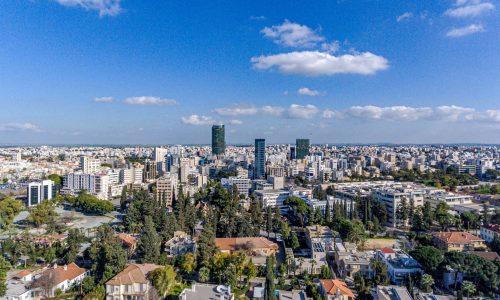Asset ownership abroad means it is important to consider the future and estate planning and security from an international perspective. Succession law in each country where your assets are cannot be overlooked. A Will or trust prepared in plain language however may protect your estate and your heirs from unwanted burdens and contentious court proceedings.
The introduction of the EU Succession Regulation (Known as Brussels IV) in August 2015 sought to harmonize and simplify as far as possible succession rights in the EU. The aim of the Regulation is to remove the obstacles individuals are faced with when asserting their rights in the context of succession which have cross-border implications.
The EU Succession Regulation affects those who have assets in any EU member state and the rights of succession to those assets. The UK opted out of Brussels IV but it is especially relevant now with many British nationals who own assets in the EU seeking to retain connections to those countries due to Brexit.
Succession in relation to movable property
Domicile matters for the purpose of succession to movable property. The succession to movable property of a person who has passed away in Cyprus, but did not have his domicile in Cyprus at the time of his death is governed by the laws of the country in which he had his domicile and not under Cyprus law therefore if someone had his domicile outside Cyprus and has movable assets in Cyprus succession to those movable assets he may distribute in his Will his movable assets as he wishes and of course he will be subject to succession laws of his domicile.
If however the domicile of the deceased was Cyprus then Cyprus law applies and special provisions of forced heirship and restrictions of the estate bequeathed by Will shall prevail with respect to those movable assets. Once again careful drafting of the Will should ensure that the testator’s wishes as set out in the Will can be executed.
Immovable property in Cyprus and succession after Brussels IV
The law applicable to the succession of the estate asa whole shall be the law of the State in which the deceased had his habitual residence (domicile) at time of death, it also provides that a person may choose as the law to govern his succession as a whole the law of the State whose nationality he possesses at the time of making the choice or at the time of death. If this is not done then there is a high likelihood that for succession of immovable property which is situated in Cyprus then it will be distributed to the closest blood relatives in equal shares, subject to certain regulations on this matter.
In order to establish whether the provisions of the Cyprus Succession law will apply for purposes of regulating succession of a testator’s estate here in Cyprus, it is important to establish where the deceased had his domicile at the time of death. An individual is considered as domiciled in Cyprus by way of domicile of origin or by domicile of choice. This can sometimes become a complex issue and can be determined by taking into consideration several factors.
How does Brussels IV affect me?
Knowing which country’s law will applies to your estate is important as many countries in the EU have in their own succession rules in their laws which limit or bar non close family members from inheriting under the provisions of the Will. This is known as ‘forced heirship’. Brussels IV in essence applies to determine who can benefit from your estate and in which proportions.
The EU Regulation harmonizing succession rules dictates that the law that will apply to your estate as a whole will be, ordinarily, the law of the country where you have your ‘domicile’ in simpler terms your habitual place of residence at the time of death.
Although as a general rule the Regulation provides that the law applicable to succession asa whole shall be the law of the State in which the deceased had his habitual residence (domicile) at time of death, it also provides that a person may choose the law which will govern succession to his estate as a whole the law of the state of his nationality or the law of the state with which he has a close relation.
The choice of law therefore, should be as clear as possible in the Will. This invariably means care should be taken in drafting the terms of a Will.
I am a UK national how will my Will be affected by Brexit?
The UK in 2015 opted out of the EU Regulation and this means that the UK was and will be considered a third state for the purposes of the regulation. The UK has now left the EU, despite this Brussels IV will still affect nationals with assets in Cyprus. This means that UK succession laws will dictate how one’s estate is divided up upon death where the Will expressly states that the choice of law is UK law.
What if I want my Will to be governed by UK law how is my estate in Cyprus affected?
A Will which contains a provision that it will be governed by UK law will allow you to dispose of your movable assets freely but your immovable assets in Cyprus will be distributed according to Cyprus law. This is because under current UK Succession law, distribution of the immovable estate is made according to the law of the country in which that real estate exists. If you have real estate in Cyprus that stands to be distributed to your heirs under forced heirship rules, irrespective of the provisions in the Will. If you want to avoid this then careful legal advice needs to be provided in the estate planning process.
Is it essential to have a Will?
No is not but there are benefits. If you do not have a Will then your estate will be subject to rules in each country where you have assets which will dictate how your estate both movable and land and other possessions are distributed and in which proportions and to whom. This may be contrary to your wishes and your estate may not pass to those people you would want to inherit from you. The clear benefits of a Will outweigh any detriments, moreover with a Will you may also include in it trust provisions, appoint guardians of children or ensure that certain assets are protected until children become adults or reach a certain age.
Having a Will also means quicker commencement of probate and distribution of the estate to the beneficiaries. It is also useful to have a Will in place as in a Will the powers of a named executor in the Will has immediate powers and duties and can proceed with Probate and taking control of the estate and its distribution. If there is no Will then an administrator must be appointed, ordinarily approved by the heirs of the deceased and an application must be made to the court.
Can a Will be challenged?
Yes it can by any person who believes that the Will was the product of duress or fraud on the testator. It can also be challenged for ambiguity and for not conforming to correct formalities. It can be challenged additionally where there are 2 concurrent Wills, where it has been lost and only a copy exists and where it has not been witnessed properly. Finally, the contents of the Will can also be challenged where any beneficiary or inheritor named in the Will has been bequeathed more than he or she would ordinarily be entitled to by law.
Our advice on Wills
We are qualified Trust and Estate Practitioners and we appreciate that when it comes to preparing a Will or Trust a good listening ear is required. Your individual wishes and concerns regarding family, and financial arrangements will be understood so that in the end you will have a Will in plain unambiguous language tailored to your specific circumstances.
Email us on info@stylianou.law or call us for an initial consultation on +357 22 33 61 00




